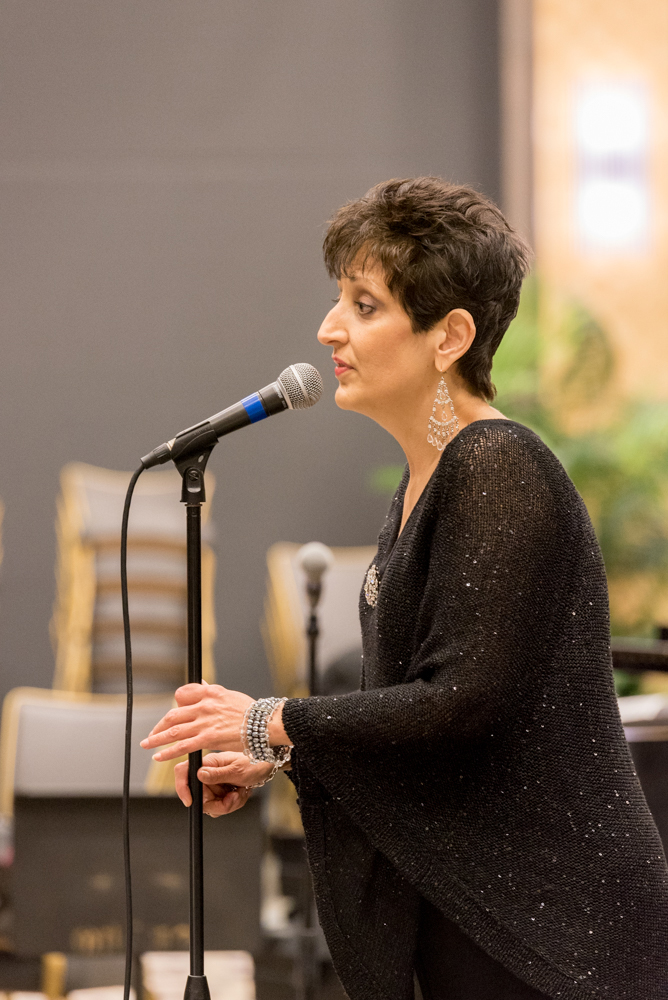Emily Ambery | Staff Writer
10/08/2020
September is popularly recognized as the beginning of fall, football and pumpkin spice latte season, but it also begins City of Asylum’s Jazz Poetry Month. City of Asylum has dedicated the month of September to celebrating these two arts for 16 years, but this year it looked a little different: City of Asylum provided all their concerts and poetry readings virtually.
On Thursday, Oct. 1, the City of Asylum held its last virtual program of Jazz Poetry Month which featured a reading of “Tallahatchie LullaBye, Baby” — a lullaby to Emmett Till by poet Douglas Kearney. The event also included four nationally recognized jazz artists’ responses to the poem.
City of Asylum is an organization created to build a more just community by protecting and celebrating freedom of expression. It provides sanctuary to literary writers exiled under threat of persecution so they can continue to write and are not silenced.
To begin the event, poet and University of Pittsburgh professor Dawn Lundy Martin stated the significance of September at City of Asylum in Pittsburgh as a month to celebrate jazz and poetry.
“At its core, jazz poetry is about the exchange of languages and ideas. It’s a celebration of the freedom of expression and the power of one’s voice,” Martin said.
Martin furthered explained the importance of freedom of expression and how it is constantly threatened all around the world.
The event featured Sonali Samarasinghe, a Sri Lankan diplomat, writer, lawyer, human rights activist and former investigative journalist who now lives in Manhattan. Samarasinghe shared her story of being targeted by authorities for her newspaper’s open criticism of government corruption, and how she was ultimately forced to flee her country.
Despite the challenges Samarasinghe faced, she encouraged the audience to think of exiled writers’ stories as ones of hope.
“If we keep chipping away at the behemoth that is impunity and prejudice and hatred, we can achieve something. We can heal and reclaim what has been lost in our writing, our music and our creative expression,” Samarasinghe said.
After Samarasinghe’s message, Abby Lembersky, the director of programs at City of Asylum welcomed the audience to the last event of the jazz poetry month-long celebration. Lembersky highlighted Terrence Hayes, former MacArthur fellow and long time friend of City of Asylum, who chose the poem for the night’s event.
Hayes reflected on the poem chosen for the night, “Tallahatchie LullaBye, Baby,” before author Douglas Kearney began the reading.
Kearney wrote the poem in 2004, and noted that while it was timely then almost 50 years after the murder of Emmett Till, it continues to be relevant today. Kearney touched on the idea of the “changing same,” that whether it is a child or a person who identifies as transgender, the poem still identifies a historical pattern, repetition and persistence that the anti-Black violence does not stop.
“When I wrote ‘Tallahatchie LullaBye, Baby,’ I was thinking about how to write about that very specific murder of Emmett Till in 1955 at the hands of Roy Bryant and his brother-in-law Milam, and at the same time how not to necessarily re-present the violence of that. I wanted to talk about it without necessarily showing the violence,” Kearney said.
Kearney expanded that framing the poem as a lullaby reminds the audience that Emmett Till was 14 years old when he was murdered.
The event then featured multiple interpretations and hearings of “Tallahatchie LullaBye, Baby,” to spread awareness and foster a conversation about the longstanding issues of systemic social injustice and racial inequality. The four compositions and performances were by Pheeroan akLaff, Dee Alexander, Orrin Evans and Nicole Mitchell.
Pheeroan akLaff is a drummer and award-winning composer, who has worked with musicians all over the world. His international travels are influential in his music. Dee Alexander is a gifted and widely-known vocalist and songwriter from Chicago. She has experience performing in every genre, but has a strong love for and connection to jazz music. Orrin Evans is an American jazz pianist who has worked with many talented artists. He is an award-winning pianist and has 25 albums as a leader or co-leader. Nicole Mitchell is an award-winning flutist, composer, conceptualist, bandleader and educator.
During the performances, the live chat feature of the virtual event was filled with praise for Kearney and the four jazz artists. The live chat encouraged the viewers to be engaged with the event and eliminated the distance that accompanies a virtual event. Kearney also utilized the chat feature to interact with viewers and to express his gratitude and awe for the musicians who put his words to music.
To conclude the event, Kearney shared a few more of his poems: “That Loud Assed Colored Silence: Protest,” “Close: For My Family” and “Sho.”
Following the event, Duquesne hosted a discussion with Dr. Anthony Kane, the director of diversity and inclusion. This discussion was set up as a safe space for students to come to after the event to discuss and reflect on the poems, music and stories.
The discussion helped to relate Keaney’s poem “Tallahatchie LullaBye, Baby” to what is happening today with respect to racial injustice.
“This event showcased the importance of the arts and more specifically how often we lose sight of how art imitates and reflects life,” Kane said. “Knowing so much about what happened to Emmet Till and the parallels between his case and Breonna Taylor made it kind of a ‘ah ha’ moment.”
Law student Gabby Kolencik was involved in the planning and organization of the event, and was able to attend the discussion with Kane afterwards.
“For me, what was so moving was to see how many different ways this single, powerful piece was interpreted,” Kolencik said. “Although there was one poem, it took life in a plethora of ways that left me simply in awe.”
The Jazz Poetry Month at City of Asylum provides its audiences with various events that encourage them to learn about poetry and music. By spotlighting Kearney’s poem on racism and its many pervasive forms still relevant today, this event called attention to important current events like the Black Lives Matter movement. This event encouraged using creative outlets, like writing, poetry, art and music to fight injustice in the U.S. and around the world.
A schedule of City of Asylum’s future events, along with a recording of the Oct. 1 event, can be found at https://cityofasylum.org/




